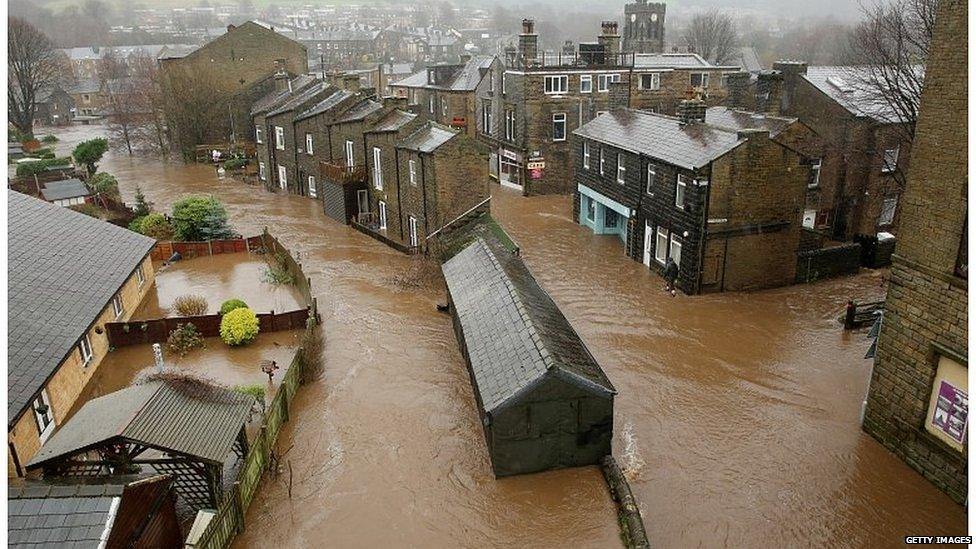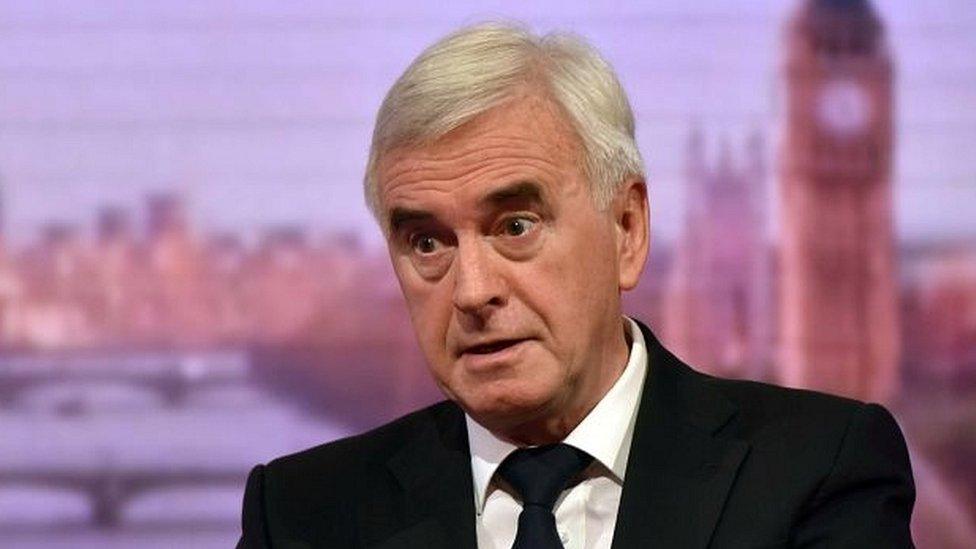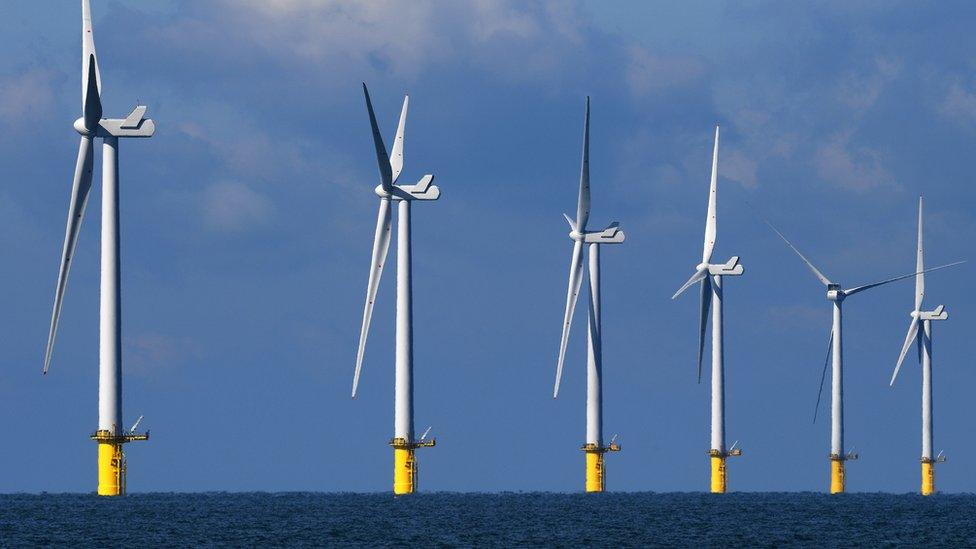Labour says budget watchdog OBR should begin climate modelling
- Published
- comments

Experts have warned about the increasing frequency and severity of flooding
The financial risks posed by climate change should be included in future economic forecasts, Labour has said.
Shadow chancellor John McDonnell wants the Office for Budget Responsibility to model the effects of human-made climate change on the public finances.
In a speech in London, he said people had a right to know the financial cost of "environmental degradation".
Campaign groups welcomed the idea but the watchdog said it was up to Parliament to determine its remit.
The OBR's responsibilities and functions are set out in an Act of Parliament, passed in 2011 when the body was set up by the Conservative-Lib Dem coalition government.
As well as assessing the state of the UK economy and scrutinising government fiscal targets, it is required to produce a report every two years identifying the fiscal risks facing the UK.
Addressing the IPPR think tank, Mr McDonnell said a future Labour government would extend the OBR's remit to consider the impact of climate change, which he described as the UK's "greatest single public challenge".
On top of its other duties, he said the OBR - which is headed by economist Robert Chote - should become a "new centre of expertise for environmental macroeconomics".
"The truth is that meeting the challenge of climate will require more than marginal adjustments," he said. "It will require a transformation of our institutions and how our economies are run."
"We want to ensure that the overwhelming challenge of climate change is addressed from the very centre of government. This includes the potential losses to the public finances.
"The public deserve to know what impacts we might expect on the national purse from the degradation of our environment. Sound, responsible economic management should already be accounting for this."
The OBR would be given the resources necessary for the task, he added, suggesting that once the initiative was introduced, it would be accepted as commonplace by future governments.
He also called for the watchdog to report to Parliament, instead of the Treasury in future, which he said would further strengthen the body's independence.

Greenpeace said calculating the economic cost of climate change would "focus the minds" of ministers in terms of their policy responses.
"Major companies and financial institutions have already started factoring in the impacts of climate change in their forecasts, so it's right that the UK government should do the same for the public purse," the organisation's chief scientist Doug Parr.
But the Institute for Economic Affairs said the OBR had a "poor record" on conventional economic forecasting and Labour's proposal would "risk compounding the resulting policy errors".
"Moreover, there's a danger that the OBR's climate change work would be one-sided and misleading to policymakers unless it also considered the economic impact of the policies imposed to reduce greenhouse gas emissions," said Dr Richard Wellings, a member of the free-market think tank's research team.
The Committee on Climate Change, which advises ministers, said earlier this year that there had been little assessment of the potential macroeconomic impact of climate change but identified the "increasing frequency and severity of flooding" as the most significant climate-related threat to UK infrastructure and industry.
The OBR will release its latest economic forecasts next Wednesday to coincide with Philip Hammond's Autumn Budget.
In the run-up to the 2015 election, Labour called on the OBR's remit to be changed to allow it to audit its spending plans in the run-up to general elections - a move that was rejected by the government.
- Published27 September 2017

